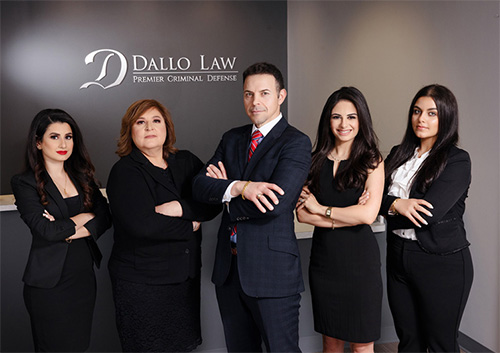If you’re being suspected of possessing a controlled substance in Michigan, you could face serious penalties. The majority of possession offenses in Michigan are classified as a felony and can lead to lasting consequences depending on the drug and how much was found on your person. You could be sentenced to time in prison, be required to pay expensive fines, have your license suspended, and possibly lose your job or be denied employment because of your record. Because of these daunting penalties, we highly suggest you secure legal counsel with an experienced attorney immediately.
A skilled and knowledgeable defense attorney can analyze your case and formulate a strong defense to protect your future. They can file motions to suppress evidence, find expert witnesses to testify on your behalf, and exhaust every possible legal option until you receive the best possible result for your case. However, it’s important you start building your defense as soon as possible. The more time you have dedicated to your defense the better the outcome will be. So, if you’ve been arrested for drug possession, it’s within your best interest to contact an experienced criminal defense attorney.
Oakland County Possession of a Controlled Substance Lawyer
Reputable and experienced legal representation is easy to find with the legal team at Dallo Law, P.C.. Our managing attorney J. Dallo has been representing people accused of drug crimes for years from simple possession to complex drug trafficking schemes. J. Dallo handles all phases of the criminal prosecution from the time the criminal investigation begins, during the time when the prosecutor reviews the warrant, the evidentiary motions to suppress or exclude evidence, through trial. You can count on him to keep you informed throughout every step of the case and to ensure you’re always aware of your legal options.
If you were accused of knowingly possessing a controlled substance, then call our office at (248) 283-7000 for your first consultation free. During the consultation, J. Dallo will hear your case and then lay out a defense plan to tackle your charges. You can find our office in Bloomfield Hills, but we practice throughout the greater Oakland County and Macomb County area including Pontiac, Troy, Waterford Township, Oakland Charter Township, Clarkston, Southfield, Royal Oak, Novi, Auburn Hills, West Bloomfield Township, Birmingham, Warren, Sterling Heights, Eastpointe, New Baltimore, Fraser, Utica, Romero and Clinton Township.
Information Center:
- What Charge is Possession of a Controlled Substance?
- Michigan Drug Schedules
- Is Possession of a Controlled Substance a Felony?
- Possible Defenses to Drug Possession Charges in Michigan
- Additional Resources
What Charge is Possession of a Controlled Substance?
When a person has on their person an illegal controlled substance, they could be charged with possession. The elements for possession of a controlled substance can be found under the Michigan Model Criminal Jury Instructions 12.5. These instructions provide that when the defendant is charged with the crime of knowingly or intentionally possessing a controlled substance, the prosecutor must prove the following elements beyond a reasonable doubt:
- First, that the defendant possessed the controlled substance identified in the charging document.
- Second, that the defendant knew that he or she possessed the controlled substance.
- Third, the substance that the defendant possessed weight the amount alleged in the charging document.
Michigan Drug Schedules
Similar to other states, Michigan organizes their controlled substances into schedules to help with prosecuting and sentencing. The potential for prison time will depend on the schedule the controlled substance you were caught with was and the amount you had on your person. Listed below are the five drug schedules under Michigan law.
Schedule I Substances – Drugs with a high potential for chemical dependency and serve no legitimate medical purpose are under this group. The following are some examples of controlled substances found under schedule I.
- LSD
- Heroin
- Peyote
- Hallucinogenic Mushrooms
- GHB (date rape drug)
Schedule II Substances – Controlled substances with a high potential of abuse but have some limited approved medical use in the United States is under schedule II. When used in a medical setting, these drugs are highly regulated due to their addictive nature. A few examples include:
- Cocaine
- Opium
- Hydrocodone
- Methadone
- Methamphetamines
- Oxycodone
- Morphine
Schedule III Substances – Substances found under schedule III still have a considerable risk of addiction but are considered more moderate than schedule I or II. Many of these drugs have accepted medical uses as well. Some common examples of drugs under schedule II include:
- Ketamine
- Hydrocodone with aspirin or acetaminophen
- Morphine
Schedule IV Substances – Drugs with a low risk of abuse and have limited addictive tendencies can be found under schedule IV. Some of the most common drug that are possessed under this category include:
- Xanax
- Valium
- Rohypnol
Schedule V Substances – Controlled substances in this category have a very low risk of abuse, however the potential for some type of dependency still exists. Many of these drugs can be found over the counter, including:
- Cough syrup with codeine
- Cold medicine with ephedrine
Is Possession of a Controlled Substance a Felony in Michigan?
The court utilizes several factors when determining sentencing for drug possession. Some of these include the type of drug used, the schedule it was under, and the amount you had on you during the commission of the crime. The more drugs you have on your person, the more severe the potential prison sentence and fines can be.
Under Section 333.7403 of the Michigan Public Health Code, the penalties for possession of a controlled substance include the following:
- Peyote, LSD, Mescaline, DMT, Psilocybin, Psilocin or Schedule 5 drugs – Possession of these drugs will result in a misdemeanor, which is punishable by up to one year in jail and a fine of up to $2,000.
- Schedule 1, 2, 3 or 4 Drugs Other Than Narcotics and Cocaine – Charged as a felony offense, you could face up to two years in prison and be ordered to pay a fine of up to $2,000 as well.
- Gamma-Butyrolactone (GBL) – Possession of this drug is a felony offense, and you could be sentenced to up to two years in prison and a fine of up to $2,000.
- MDMA, Ecstasy or Methamphetamine – Possession of these drugs will result in a felony, which is punishable by up to 10 years in prison and a fine of up to $15,000
- Less Than 25 Grams of a Schedule I or II Narcotic or Cocaine – If you’re found with this amount of Schedule I or II drugs, then you could be sentenced to up to 4 years in prison and be ordered to pay a fine of up to $25,000.
- 25 to 50 Grams of a Schedule I or II Narcotic or Cocaine – Charged as a felony, you could face up to 4 years in prison and be ordered to pay a fine of up to $25,000.
- 50 to 450 grams of a Schedule I or II Narcotic or Cocaine – This is a felony offense, and you could face up to 20 years in prison and a fine of up to $250,000 upon conviction.
- 450 to 1,000 Grams of a Schedule I or II Narcotic or Cocaine – A felony offense if you’re convicted. The penalties include up to 30 years in prison and a fine of up to $500,000.
- 1,000 Grams or More of a Schedule I or II Narcotic or Cocaine – If convicted, you could face a felony punishable by up to life in prison and a fine of up to $1 million.
Common Defense Against Drug Possession Charges in Michigan
Under Michigan law, the use or possession of a controlled substance with a prescription is excepted from a criminal violation of the Controlled Substances Act under MCL 333.7403(1) or MCL 333.7404(1).
This means that it is a defense to the change of unlawfully possessing a controlled substance if the defendant had a valid prescription for the substance or was authorized possess it.
If the defense presents competent evidence that the defendant had a valid prescription or was otherwise authorized to possess the substance, the court will advise the jury of the instruction found in M Crim JI 12.4a.
For this affirmative defense, the defendant has the burden of proving the valid prescription or authorization to manufacture, deliver, possess, or use the substance by a preponderance of the evidence.
This means that the evidence must persuade the jury as the factfinder that it is more likely than not that the valid prescription existed or that the defendant was authorized to manufacture, deliver, possess, or use the substance.
Additional Resources
Michigan Drug Possession Laws – Visit the official website for the Michigan Legislature to learn more about their laws surrounding drug possession. Access the site to learn the penalties for possessing certain drugs such as cocaine, heroin, methamphetamines, fentanyl and morphine.
NORML Michigan Chapter – Visit the official website for NORML (National Organization for the Reform of Marijuana Laws) to learn more about cannabis possession and sale laws in Michigan. Access the site to learn the penalties for selling or distributing marijuana, cultivating cannabis, THC concentrates and more.
Bloomfield Hills Attorney for Drug Possession
If you were accused of knowingly possessing a controlled substance, then get in contact with the experienced legal team at Dallo Law, P.C.. Our attorney J. Dallo has extensive experience with drug cases and can help you assert defenses that you were not in possession of the substance. He can also help you presents competent evidence of any applicable defenses, including a showing that you had a valid prescription for, or were otherwise authorized to use, possess, or manufacture the controlled substance.
Set up your first consultation with J. Dallo by calling us now at (248) 283-7000. Our firm practices throughout the greater Oakland County and Macomb County area in Michigan.









